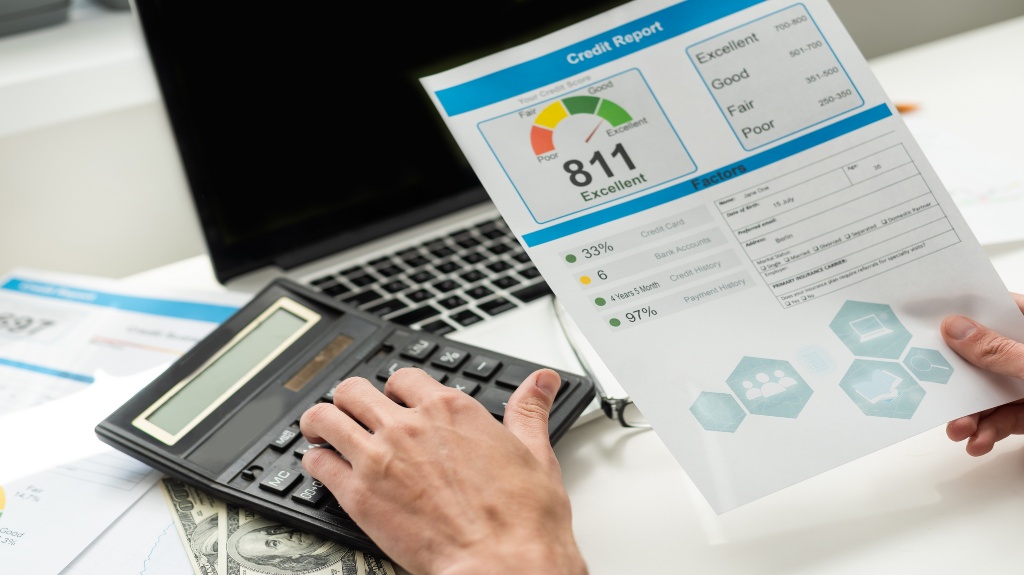Bankruptcy is a process that allows individuals or businesses to repay their debts when struggling financially. This can be very helpful, as it offers a fresh start. However, filing for bankruptcy can have a negative impact on your credit report. It can decrease your credit score, which can make it difficult to get loans, credit cards, or even rent a home. It is important to understand how long bankruptcy will stay on your credit report for anyone who is considering or has already filed for bankruptcy. This blog will cover how long bankruptcy stays on your credit report in California, so you can better prepare for the future and take steps to rebuild your credit after filing.

Types of Bankruptcy
There are two main types of personal bankruptcy that can have an impact on your credit report. Here is an overview of the two types:
- Chapter 7 Bankruptcy: Chapter 7 bankruptcy, often referred to as “liquidation bankruptcy,” is designed for individuals who cannot repay their debts. This involves liquidating non-exempt assets to pay off creditors, allowing for the discharge of most unsecured debts, such as credit card balances and medical bills.
Learn More: Understanding Chapter 7 Bankruptcy: A Comprehensive Guide
- Chapter 13 Bankruptcy: Chapter 13 bankruptcy, known as “reorganization bankruptcy,” allows individuals with a regular income to create a repayment plan to pay back all or part of their debts over three to five years. This type of bankruptcy works well for those who wish to keep their assets while managing their debt.
Learn More: California Chapter 13 Bankruptcy: A Path to Reorganization
Duration of Bankruptcy on Credit Reports in California
Each type of bankruptcy has a different duration for how long it will stay on your credit report in California.
- Chapter 7 Bankruptcy
- Duration: Chapter 7 bankruptcy remains on your credit report for 10 years from the date of filing.
- Impact on credit score and report: Chapter 7 bankruptcy can cause a drop of 100 points or more on your credit score immediately after filing. This decline occurs because lenders consider the discharge of debts as a high-risk factor.
- Chapter 13 Bankruptcy
- Duration: Chapter 13 bankruptcy stays on your credit report for 7 years from the filing date.
- Impact on credit score and report: Chapter 13 has a less severe impact on your credit score than Chapter 7. Because Chapter 13 involves a repayment plan, it shows you are committed to repaying your debts, potentially leading to a more favorable view over time. You will most likely still see a credit score drop, but the fact you are repaying debts will help limit the damage in the long run.
How Bankruptcy Impacts Your Credit
When you decide to file for bankruptcy, it can show you were unable to meet your financial commitments. This leads to a noticeable drop in your credit score right after filing, many people find their score drops by 100 points. How much it decreases depends on several factors, like what your credit score was before filing and your overall credit history.
Bankruptcy is seen as a red flag on your credit report, and the major credit bureaus like Experian, TransUnion, and Equifax view it as a significant concern. When lenders take a look at your credit report, they’ll notice the bankruptcy entry, which raises suspicion about your financial risk. Because of this, you might find it more challenging to secure new credit, face higher interest rates, or even be denied by lenders altogether. It’s a hard reality, but understanding this impact can help you be better prepared for the future
Navigating Your Path to Financial Recovery and Rebuilding Credit
The reality of filing for bankruptcy is that it will have a significant impact on your credit report. With it having the capability of dropping your credit score by 100 points and staying on your credit record for 7-10 years, it has everlasting effects. However, this is no reason to avoid filing for bankruptcy. Bankruptcy can help you get a fresh start with your financial situation that would be unobtainable otherwise. Rebuilding your credit after bankruptcy is not only possible but also achievable with proactive measures. Focus on managing your existing debts responsibly, making timely payments, and exploring new credit options that suit your financial situation.
If you’re considering bankruptcy or are currently navigating the process, it’s important to seek guidance tailored to your unique circumstances. Contact Unruh Law today for personalized advice and assistance. We can help you understand your options and guide you through the process, ensuring you make informed decisions for a brighter financial future.
